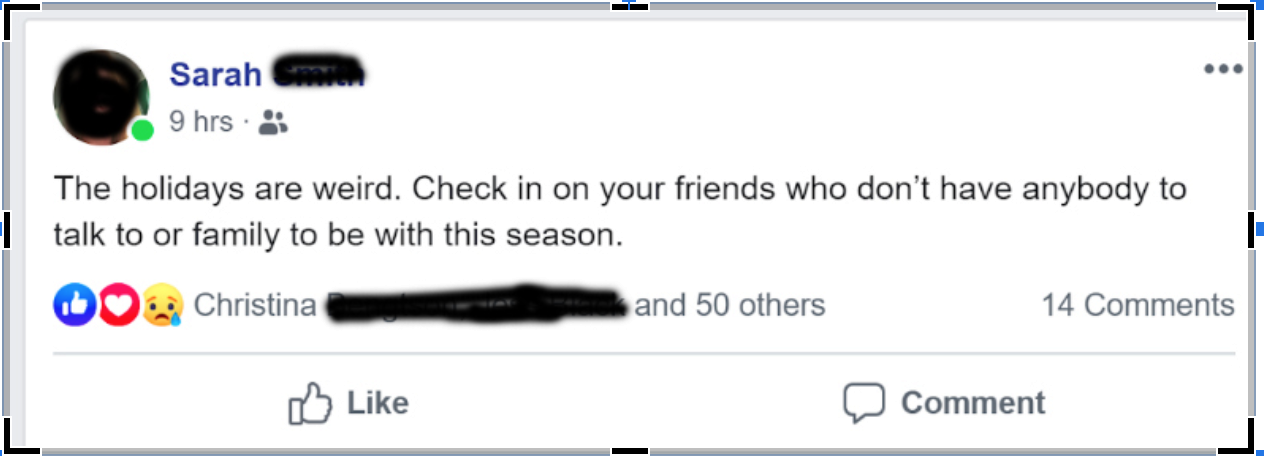I Don't Want Pity for Being Disabled and Alone During the Holidays
As temperatures drop and Thanksgiving approaches, people are beginning to think of the winter holidays. Thus commences the “Christmas season” and the inevitable Facebook posts reminding my privileged peers to “Check in on your friends who don’t have anybody to talk to or family to be with this holiday season.” I’ve already seen these sentiments on social media, and they trigger dyspepsia at minimum and outright revulsion at worst.

Although I resent meeting any of the aforementioned criteria, I am the perfect candidate for my abled peers to “check in” on me during the Christmas season. I am 34 years old with both physical and mental health disabilities. My parents leave town for extended periods of time during the holidays. Though I did nothing to them, my uncle’s entire family ghosted me due to a fight where I was merely collateral damage. While we live only a three-minute drive away from each other, I haven’t been invited to family holiday functions in nearly three years.
Even though my disabilities make the holidays the most difficult time of the year, I would prefer dealing with my depression alone to calls, Facebook messages, and offers to get together from acquaintances over the Christmas season — at least the ones who view me as an object of charity. If the individuals in question truly cared about a genuine emotional exchange, they would require neither reminders nor the Christmas spirit to make contact.
Quite frankly, I have greater self-respect than to accept holiday pity that appears more self-congratulatory than anything else. Such overtures all too often devolve into the abled elevating themselves through charity toward “servile” disabled people like me, rather than ensuring that my human needs are met. I see these temporary gestures of “caring” as a glorified adult version of the “community service hours” high schoolers know they should perform to get into their first-choice college, despite their desire to have “fun” with friends.
Instead of winning acceptance to their desired institution of higher learning, the overarching goal in this corollary is getting into heaven or being right with abled people’s consciences. In other words, I am not worthy of long-term communication because I am an interesting person; I only merit temporary attention due to their needs — to be inspired by my struggles, to reassure themselves they are charitable people, to be blessed by a divine being. As is the case with so many high-schoolers and community service hours, abled adults’ Christmas benevolence ceases once they’ve donated enough of their time to check a box, namely, “I’ve performed enough charity for the less fortunate this holiday season.”
While my abled peers may pity me over the holidays, I prefer to be thought of as more than a disabled object of Christmas charity. I have passions that keep me engaged, connect me to the outside world and add something to the universe. I love writing, photography and politics, and I have valuable qualities to bring to any friendship.
Although I trudge through the holiday season beset by asthma, panic disorder and depression, I am not destitute due to my disabilities. I have a roof over my head and cherished possessions that give my life meaning. And I have close friends, who, even though we live in different corners of the world, still keep connected over Facebook messenger and email. They make time for me throughout the year; I add something to their life, and they to mine. Their continued support and friendship is all I ask for during the holiday season.
Getty image by Kado.

